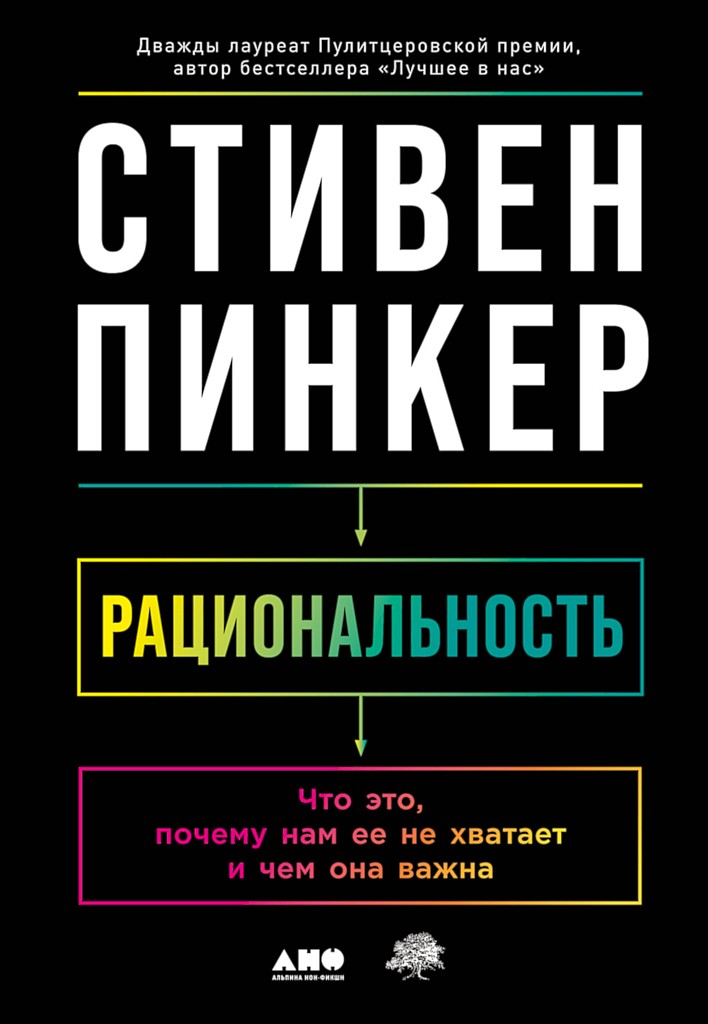risky is it, really? Why our fears don’t always match the facts. New York: McGraw-Hill.
Rosch, E. 1978. Principles of categorization. In E. Rosch & B. B. Lloyd, eds., Cognition and categorization. Hillsdale, NJ: Erlbaum.
Rosen, J. 1996. The bloods and the crits. New Republic, Dec. 9. https://newrepublic.com/article/74070/the-bloods-and-the-crits.
Rosenthal, E. C. 2011. The complete idiot’s guide to game theory. New York: Penguin.
Roser, M. 2016. Economic growth. Our World in Data. https://ourworldindata.org/economic-growth.
Roser, M., Ortiz-Ospina, E., & Ritchie, H. 2013. Life expectancy. Our World in Data. https://ourworldindata.org/life-expectancy.
Roser, M., Ritchie, H., Ortiz-Ospina, E., & Hasell, J. 2020. Coronavirus pandemic (COVID-19). Our World in Data. https://ourworldindata.org/coronavirus.
Rosling, H. 2019. Factfulness: Ten reasons we’re wrong about the world — and why things are better than you think. New York: Flatiron.
Roth, G. A., Abate, D., Abate, K. H., Abay, S. M., Abbafati, C., et al. 2018. Global, regional, and national age-sex-specific mortality for 282 causes of death in 195 countries and territories, 1980–2017: A systematic analysis for the Global Burden of Disease Study 2017. The Lancet, 392, 1736–88. https://doi.org/10.1016/S0140-6736(18)32203-7.
Rumelhart, D. E., Hinton, G. E., & Williams, R. J. 1986. Learning representations by back-propagating errors. Nature, 323, 533–36. https://doi.org/10.1038/323533a0.
Rumelhart, D. E., McClelland, J. L., & PDP Research Group. 1986. Parallel distributed processing: Explorations in the microstructure of cognition, vol. 1, Foundations. Cambridge, MA: MIT Press.
Rumney, P. N. S. 2006. False allegations of rape. Cambridge Law Journal, 65, 128–58. https://doi.org/10.1017/S0008197306007069.
Russell, B. 1950/2009. Unpopular essays. Philadelphia: Routledge.
Russell, B. 1969. Letter to Mr. Major. In B. Feinberg & R. Kasrils, eds., Dear Bertrand Russell: A selection of his correspondence with the general public, 1950–1968. London: Allen & Unwin.
Russett, B., & Oneal, J. R. 2001. Triangulating peace: Democracy, interdependence, and international organizations. New York: W. W. Norton.
Sá, W. C., West, R. F., & Stanovich, K. E. 1999. The domain specificity and generality of belief bias: Searching for a generalizable critical thinking skill. Journal of Educational Psychology, 91, 497–510. https://doi.org/10.1037/0022-0663.91.3.497.
Saenen, L., Heyvaert, M., Van Dooren, W., Schaeken, W., & Onghena, P. 2018. Why humans fail in solving the Monty Hall dilemma: A systematic review. Psychologica Belgica, 58, 128–58. https://doi.org/10.5334/pb.274.
Sagan, S. D., & Suri, J. 2003. The madman nuclear alert: Secrecy, signaling, and safety in October 1969. International Security, 27, 150–83.
Saldin, R. P., & Teles, S. M. 2020. Never Trump: The revolt of the conservative elites. New York: Oxford University Press.
Salganik, M. J., Lundberg, I., Kindel, A. T., Ahearn, C. E., Al-Ghoneim, K., et al. 2020. Measuring the predictability of life outcomes with a scientific mass collaboration. Proceedings of the National Academy of Sciences, 117, 8398–403. https://doi.org/10.1073/pnas.1915006117.
Satel, S. 2008. When altruism isn’t enough: The case for compensating kidney donors. Washington, DC: AEI Press.
Savage, I. 2013. Comparing the fatality risks in United States transportation across modes and over time. Research in Transportation Economics, 43, 9–22. https://doi.org/10.1016/j.retrec.2012.12.011.
Savage, L. J. 1954. The foundations of statistics. New York: Wiley.
Schelling, T. C. 1960. The strategy of conflict. Cambridge, MA: Harvard University Press.
Schelling, T. C. 1984. The intimate contest for self-command. In T. C. Schelling, ed., Choice and consequence: Perspectives of an errant economist. Cambridge, MA: Harvard University Press.
Schneps, L., & Colmez, C. 2013. Math on trial: How numbers get used and abused in the courtroom. New York: Basic Books.
Scott-Phillips, T. C., Dickins, T. E., & West, S. A. 2011. Evolutionary theory and the ultimate — proximate distinction in the human behavioral sciences. Perspectives on Psychological Science, 6, 38–47. https://doi.org/10.1177/1745691610393528.
Scribner, S., & Cole, M. 1973. Cognitive consequences of formal and informal education. Science, 182, 553–59. https://doi.org/10.1126/science.182.4112.553.
Seebach, L. 1994. The fixation with the last 10 percent of risk. Baltimore Sun, Apr. 13. https://www.baltimoresun.com/news/bs-xpm-1994-04-13-1994103157-story.html.
Selvin, S. 1975. A problem in probability. American Statistician, 29, 67. https://www.jstor.org/stable/268689.
Serwer, A. 2006. The greatest money manager of our time. CNN Money, Nov. 15. https://money.cnn.com/magazines/fortune/fortune_archive/2006/11/27/8394343/index.htm.
Shackel, N. 2014. Motte and bailey doctrines. https://blog.practicalethics.ox.ac.uk/2014/09/motte-and-bailey-doctrines/.
Sherman, C. 2019. The shark attack that changed Cape Cod forever. Boston Magazine, May 14. https://www.bostonmagazine.com/news/2019/05/14/cape-cod-sharks/.
Shermer, M. 1997. Why people believe weird things. New York: Freeman.
Shermer, M. 2008. The doping dilemma: Game theory helps to explain the pervasive abuse of drugs in cycling, baseball, and other sports. Scientific American, 298, 82–89. https://www.jstor.org/stable/26000562?seq=1.
Shermer, M. 2011. The believing brain: From ghosts and gods to politics and conspiracies. New York: St. Martin’s Press.
Shermer, M. 2015. The moral arc: How science and reason lead humanity toward truth, justice, and freedom. New York: Henry Holt.
Shermer, M. 2020a. COVID-19 conspiracists and their discontents. Quillette, May 7. https://quillette.com/2020/05/07/covid-19-conspiracists-and-their-discontents/.
Shermer, M. 2020b. The top ten weirdest things countdown. Skeptic. https://www.skeptic.com/reading_room/the-top-10-weirdest-things/.
Shermer, M. 2020c. Why people believe conspiracy theories. Skeptic, 25, 12–17.
Shtulman, A. 2017. Scienceblind: Why our intuitive theories about the world are so often wrong. New York: Basic Books.
Shubik, M. 1971. The dollar auction game: A paradox in noncooperative behavior and escalation. Journal of Conflict Resolution, 15, 109–11. https://doi.org/10.1177/002200277101500111.
Simanek, D. 1999. Horse’s teeth. https://www.lockhaven.edu/~dsimanek/horse.htm.
Simmons, J. P., Nelson, L. D., & Simonsohn, U. 2011. False-positive psychology: Undisclosed flexibility in data collection and analysis allows presenting anything as significant. Psychological Science, 22, 1359–66. https://doi.org/10.1177/0956797611417632.
Simon, H. A. 1956. Rational choice and the structure of the environment. Psychological Review, 63, 129–38. https://doi.org/10.1037/h0042769.
Singer, P. 1981/2011. The expanding circle: Ethics and sociobiology. Princeton, NJ: Princeton University Press.
Sloman, S. A. 1996. The empirical case for two systems of reasoning. Psychological Bulletin, 119, 3–22. https://doi.org/10.1037/0033-2909.119.1.3.
Sloman, S. A., & Fernbach, P. 2017. The knowledge illusion: Why we never think alone. New York: Penguin.
Slovic, P. 1987. Perception of risk. Science, 236, 280–85. https://doi.org/10.1126/science.3563507.
Slovic, P. 2007. «If I look at the mass I will never act»: Psychic numbing and genocide. Judgment and Decision Making, 2, 79–95. https://doi.org/10.1007/978-90-481-8647-1_3.
Slovic, P., & Tversky, A. 1974. Who accepts Savage’s axiom? Behavioral Science, 19, 368–73. https://doi.org/10.1002/bs.3830190603.
Soave, R. 2014. Ezra Klein «completely supports» «terrible» Yes Means Yes law. Reason, Oct. 13. https://reason.com/2014/10/13/ezra-klein-completely-supports-terrible/.
Social Progress Imperative. 2020. 2020 Social Progress Index. https://www.socialprogress.org/.
Sowell, T. 1987. A conflict of visions: Ideological origins of political struggles. New York: Quill.
Sowell, T.





